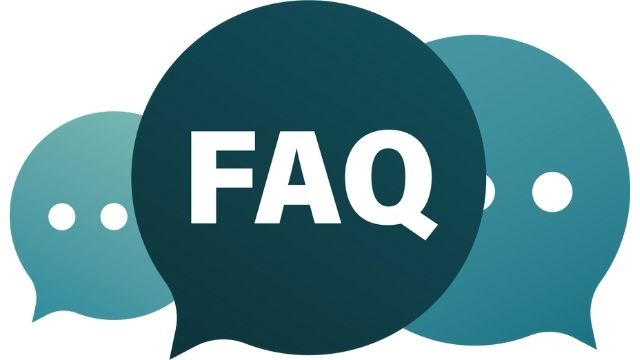Can debt collectors come after a company thats dissolved? This is a crucial question in corporate finance and dissolution matters. The dissolution of a company often seems like the end of the line, yet the implications of outstanding debts remain a critical concern for stakeholders.
As businesses wind down, understanding the legal ramifications of outstanding debts becomes paramount. This article delves into the complexities surrounding the pursuit of debts from dissolved companies, offering insights into the legal landscape and the potential liabilities that may persist beyond a company’s closure.
Professionals navigating the dissolution process will find valuable guidance in addressing these persistent financial obligations.
What Does It Mean When a Company Is Dissolved?
When a company is dissolved, it signifies the formal process of terminating its legal existence. Contrary to popular belief, dissolution is not the erasure of the company’s responsibilities. During this process, the company must settle all outstanding debts, claims, and obligations before distributing any remaining assets to shareholders or owners.
As defined in the dissolution process, careful documentation and legal compliance are paramount, ensuring creditors can no longer pursue the company for debts. Notably, dissolving does not absolve liability resulting from unlawful activities or personal guarantees, demonstrating the complexity and seriousness of corporate dissolution.
The Difference Between Dissolution and Liquidation
The difference between dissolution and liquidation primarily revolves around a company’s solvency and the complexity of closing down operations. Dissolution is the administrative process used when a solvent company no longer trades and can settle all debts. This cost-effective method involves striking the business off the Companies House register, effectively ending its legal existence. Conversely, liquidation is suited for insolvent companies unable to meet their financial obligations.
This formal procedure requires appointing a licensed insolvency practitioner to oversee asset sales and debt repayment, reflecting a more complex and costly approach. Understanding these fundamental differences is crucial for companies navigating financial closure decisions, especially when considering whether debt collectors can come after a company that’s dissolved.
What Happens to Debt When a Company Closes?
Dissolution and Debt Responsibility
When a company dissolves, understanding the fate of outstanding debts is crucial. Dissolution doesn’t automatically erase obligations. Creditors may still pursue repayment, especially for debts secured against company assets.
Businesses structured as LLCs or corporations generally protect directors from personal liability, unlike sole proprietorships, where personal assets might be at risk. Implementing a solid exit strategy can help manage debts and ensure compliance with legal responsibilities, like notifying creditors and filing final tax returns.
Attorney consultation may provide clarity on individual cases.
Can a Dissolved Company Collect a Debt?
Legal Framework
A company that has dissolved typically cannot collect debts, as it ceases to exist legally. Upon dissolution, its assets, including receivables, are meant to be distributed to settle outstanding liabilities. Creditors can petition to restore the company if debts remain, allowing debt collection to proceed under the previous corporate identity.
Exceptions and Considerations
However, complexities arise if the dissolved entity’s identity persists through a successor corporation. This scenario, sometimes termed a “mere continuation,” can allow for debt recovery from the new entity.
Legal counsel is advised to navigate such exceptions, ensuring compliance and clarity in practices like piercing the corporate veil, where officers may be personally liable for corporate debts. This facilitates an avenue for debt collectors to pursue outstanding amounts, even after the formal dissolution.
Can Creditors Restore a Dissolved Company to Claim Debts?
Legal Mechanisms for Restoration
Creditors indeed have the power to restore a dissolved company to pursue outstanding debts. This process typically involves applying to the court for the company to be reinstated on the official register. The creditor must present a court order, coupled with proof of the debt, to the Registrar of Companies. In many cases, this legal mechanism ensures that companies do not dissolve merely to evade liabilities, thereby safeguarding creditor interests even after the business closure.
Consequences for Directors
Restoring a company often places its directors in a precarious position. They may face severe penalties, including disqualification from acting as directors, personal liability for the business’s debts, or even imprisonment in cases of misconduct. As highlighted, opting for a Creditors’ Voluntary Liquidation (CVL) is the recommended path, ensuring creditors’ claims are prioritized and directors are shielded from wrongful trading accusations.
By addressing these aspects, one can discern how creditors may interact with a dissolved company’s financial remnants and the consequent implications for its directors.
What Happens to the Debts of a Dissolved LLC?
Resolving Debts Before Dissolution
When an LLC is dissolved, one of the primary concerns is addressing its outstanding debts. The process involves a formal “winding up” where the LLC liquidates its assets to repay creditors. Before dissolution, the LLC must ensure that its financial obligations are met.
The company prioritizes secured debts, using the proceeds from asset sales to settle them first. Unsecured debts are addressed with any remaining funds, ensuring creditors receive their dues. If debts remain unresolved, creditors may legally pursue debt recovery by restoring the LLC.
Consequences of Insolvency
If the LLC’s liabilities outstrip its assets, the company is deemed insolvent. In such cases, unsecured creditors may receive only partial payments. Members of the LLC do not receive any return on their investments. In extreme scenarios, creditors may force the LLC into bankruptcy, where asset distribution is handled under bankruptcy laws.
It’s important to note that dissolving a company without settling debts can lead to legal repercussions and challenge the LLC’s closure. Therefore, prospective plans for resolution, like negotiating with creditors are essential.
FAQs

What Happens to Debts When a Company is Dissolved?
When a company is dissolved, the outstanding debts don’t automatically disappear. Creditors may still pursue collection actions, particularly if there are personal guarantees or allegations of misconduct involved. In some circumstances, creditors can petition to restore the company to the register, especially if the company was dissolved improperly without addressing these debts.
Are Company Officers Protected from Liability?
While dissolution typically provides some distance from debts, certain conditions allow creditors to hold officers accountable. If the law perceives a new entity as a continuation of the previous business, it may hold this new entity liable for the old company’s debts. Moreover, if the corporation or LLC was dissolved during the debt’s incurrence, officers might be personally liable.
Legal Remedies for Debt Recovery
Creditors have legal recourse if debts are overlooked during dissolution. They could exploit mechanisms like “piercing the corporate veil” to access personal assets of individuals involved. Additionally, if a corporation merges with another, liability for debts may carry over to the surviving entity. Therefore, legal counsel is recommended to explore all possible recovery options.
Through understanding these aspects, business owners and creditors alike can better navigate the complexities surrounding the question: Can debt collectors come after a company that’s dissolved?
Conclusion
In conclusion, while the dissolution of a company may seem like the end of its financial obligations, it does not necessarily shield it from debt collection efforts. Creditors retain the right to pursue outstanding debts, often by targeting remaining assets or seeking legal recourse against former directors and stakeholders if fraudulent activity is suspected.
Thus, businesses must address all financial responsibilities before dissolving to avoid potential legal battles. Understanding the intricate legal landscape surrounding corporate dissolution and debt collection can help businesses navigate these challenges effectively and ensure a smoother transition during the winding-up process.
See Also: Understanding Debt Settlement: Is It Right for You?










